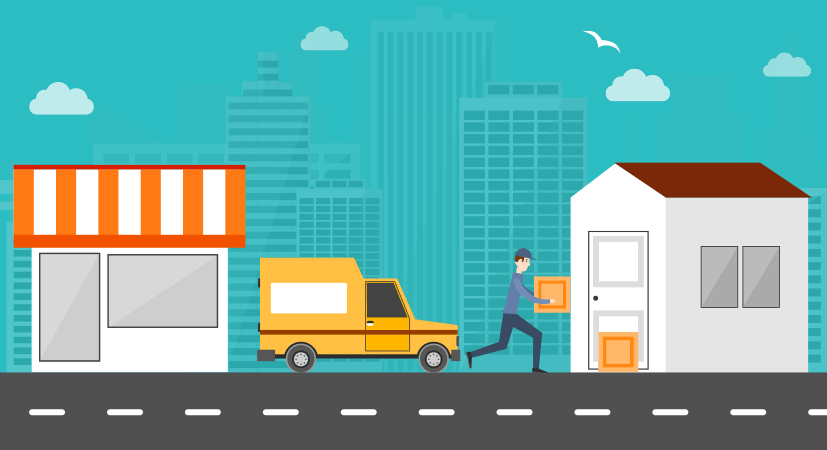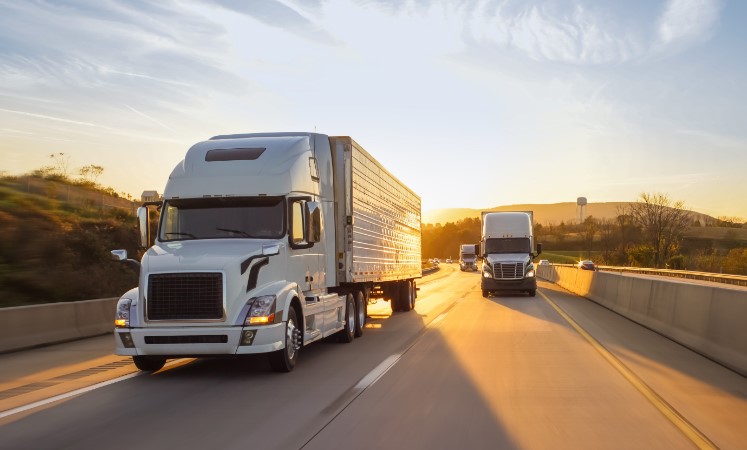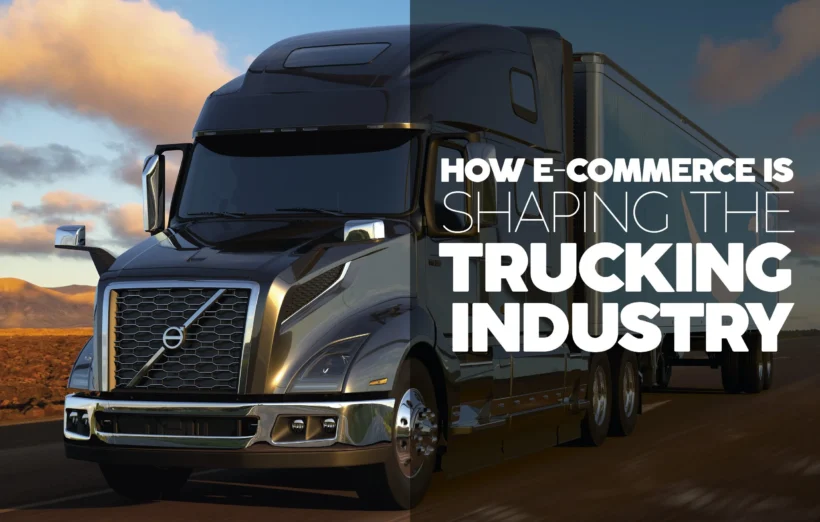In the digital age, the landscape of commerce has undergone a seismic shift, and one of the most profound transformations has been the surge in e-commerce. The convenience of online shopping, coupled with the global pandemic’s acceleration of digital adoption, has led to an unprecedented e-commerce boom. This surge has not only reshaped consumer behavior but has also left an indelible mark on various industries, particularly the trucking sector.
The Rise of E-commerce

The advent of the internet brought forth a new era of connectivity, changing the way we live, work, and shop. E-commerce emerged as a game-changer, allowing consumers to browse, purchase, and receive goods without leaving the comfort of their homes. The convenience, vast product selection, and often competitive pricing of online retailers have fueled the exponential growth of e-commerce.
Over the past decade, the e-commerce sector has witnessed a meteoric rise, with giants like Amazon, Alibaba, and eBay leading the charge. The COVID-19 pandemic further accelerated this trend, as lockdowns and safety concerns prompted consumers to shift their buying habits online. As a result, e-commerce sales reached unprecedented levels, surpassing trillions of dollars globally.
Impact on the Trucking Sector
The symbiotic relationship between e-commerce and the trucking industry cannot be overstated. The success of online retail hinges on the seamless movement of goods from manufacturers to distribution centers and ultimately to the customer’s doorstep. This intricate logistics web relies heavily on the trucking sector, which plays a pivotal role in ensuring timely and efficient delivery. If you’re looking for comprehensive turnkey solutions for your company, check out the services offered at Truck Staff: truckstaff.us/services/turnkey-company/.
1. Increased Demand for Freight Transportation
The surge in e-commerce has translated into a substantial increase in the demand for freight transportation services. Traditional brick-and-mortar retail relied on periodic restocking of shelves, with shipments often occurring in bulk. However, the e-commerce model demands a more dynamic and responsive approach to meet the demands of instant gratification.
Trucking companies find themselves at the forefront of this logistical challenge, as the need for last-mile delivery services has skyrocketed. With customers expecting quicker delivery times, trucking companies are under pressure to optimize routes, reduce delivery times, and enhance overall efficiency.
2. Evolution of Last-Mile Delivery

The last-mile delivery, the final leg of the shipping process from the distribution center to the customer’s doorstep, has become a focal point in the e-commerce boom. This evolution has prompted trucking companies to rethink and retool their strategies to meet the growing demand for speedy and reliable deliveries.
In response to the last-mile challenge, we have witnessed the emergence of innovative solutions such as drones and autonomous vehicles, although these technologies are still in their infancy. Traditional trucking, however, remains the backbone of last-mile delivery, as the unique challenges of navigating urban landscapes and interacting with customers necessitate human involvement.
3. Warehouse-to-Warehouse Freight
While last-mile delivery has garnered much attention, the entire supply chain has felt the impact of the e-commerce surge. Warehousing and distribution centers have seen a significant increase in activity, requiring efficient transportation between these facilities.
Trucking companies now find themselves involved in more warehouse-to-warehouse freight movements as businesses strive to keep up with the e-commerce demand. The need for seamless connectivity between these nodes in the supply chain has led to the development of sophisticated logistics solutions and increased reliance on technology to optimize operations. Truckstaff empowers turnkey companies to navigate complex logistical challenges and achieve operational excellence.
4. Technology Integration
The e-commerce boom has propelled the trucking sector into a technological renaissance. To cope with the increased demand and streamline operations, trucking companies are embracing cutting-edge technologies such as route optimization software, GPS tracking, and real-time data analytics.
These technologies not only enhance efficiency but also contribute to sustainability efforts by reducing fuel consumption and minimizing the environmental impact of transportation. As the industry continues to evolve, we can expect further integration of artificial intelligence, machine learning, and blockchain technologies to revolutionize the way goods are transported.
Challenges and Opportunities
While the e-commerce boom has presented numerous opportunities for the trucking sector, it has also brought about its fair share of challenges.
1. Infrastructure Strain

The sudden surge in e-commerce has strained existing infrastructure, particularly highways and urban road networks. Trucking companies are grappling with increased traffic congestion, road maintenance issues, and the need for expanded infrastructure to accommodate the growing demand.
Governments and industry stakeholders must collaborate to invest in and upgrade transportation infrastructure to ensure the smooth flow of goods and mitigate the environmental impact of increased trucking activity.
2. Labor Shortages
The heightened demand for trucking services has exposed the industry to a persistent challenge – a shortage of skilled drivers. The trucking sector relies heavily on a skilled workforce to ensure the safe and efficient transportation of goods. The industry must address this shortage through targeted recruitment, training programs, and the integration of technologies that make trucking more accessible and appealing to new entrants.
3. Sustainability Concerns
The environmental impact of increased trucking activity is a growing concern, prompting the industry to explore sustainable alternatives. Electric and hydrogen-powered vehicles, along with advancements in fuel efficiency, are critical components of the industry’s efforts to reduce its carbon footprint.
E-commerce companies and trucking firms alike must collaborate to adopt eco-friendly practices and technologies, ensuring that the e-commerce boom does not come at the expense of environmental sustainability.
Conclusion

The e-commerce boom has reshaped the commercial landscape, and its influence on the trucking sector is both profound and transformative. As the demand for online retail continues to surge, the trucking industry finds itself at the nexus of this digital revolution. Embracing technology, optimizing logistics, and addressing challenges such as infrastructure strain and labor shortages will be crucial for the trucking sector to navigate the evolving landscape and capitalize on the opportunities presented by the e-commerce boom.
In the face of these challenges, the symbiotic relationship between e-commerce and the trucking industry underscores the importance of collaboration and innovation. Together, these two sectors can not only meet the demands of the modern consumer but also drive sustainable and efficient solutions that will shape the future of commerce and transportation.

